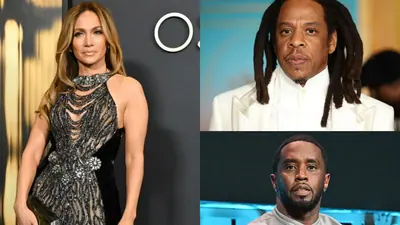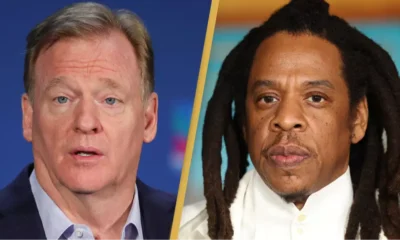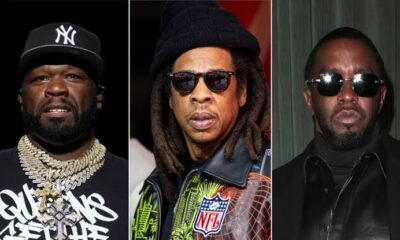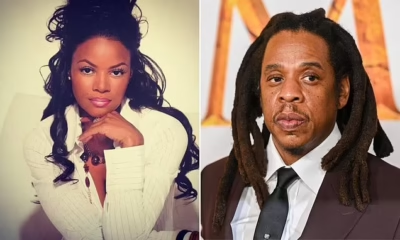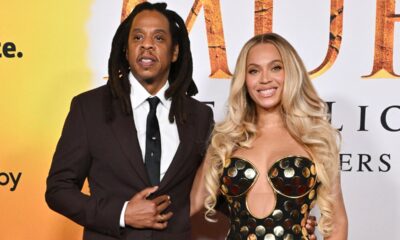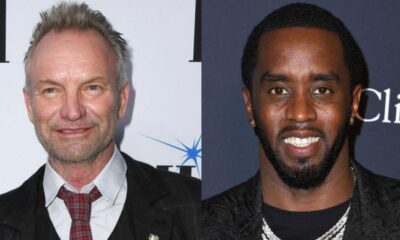CELEBRITY
Messi Spotted at Diddy’s Party… Is He Involved?
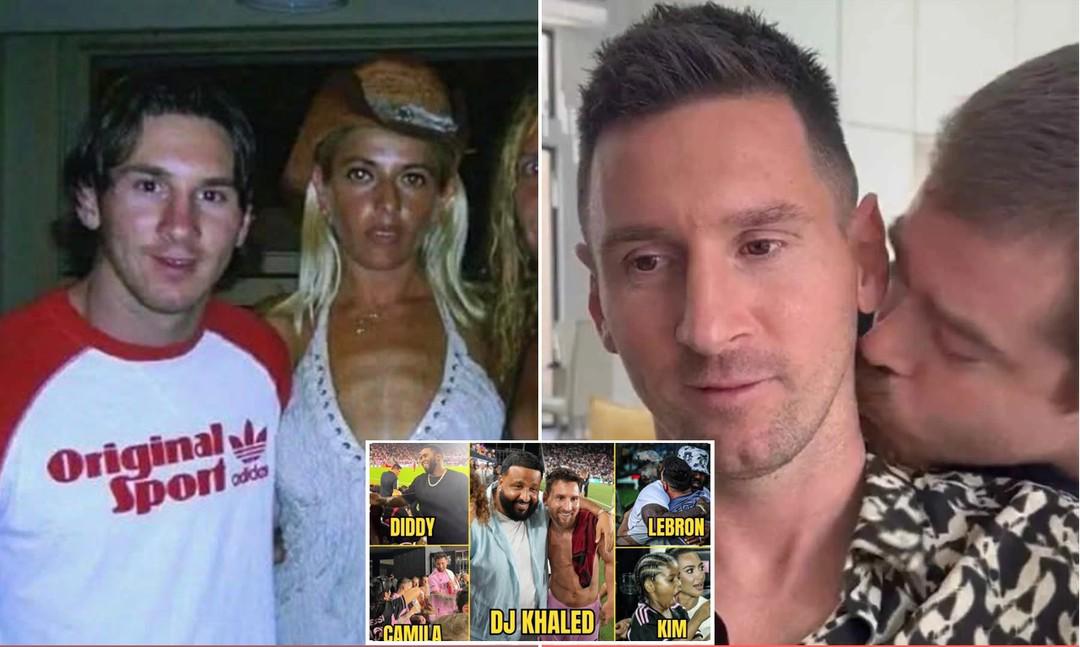
Why the Diddy Party Was Once the Most Coveted Invite
Years before accusations cast his lavishly produced parties in a criminal light, the Diddy bash was a cultural phenomenon, packed with stars from Anna Wintour to Trump and other eager “A-listers begging to get in.”
The venue, a downtown Manhattan club on a side street thronged with everyone from movie stars to wannabes hoping to gain entry to the party that was still raging at 3 a.m., had been at capacity since midnight. As the editor-in-chief of Honey, a prominent magazine for urban women, I’d been ushered in long before. Inside, the crowd — a mix of artists, music and media executives, fashion designers, actors, sports stars, entrepreneurs and models — lounged in their respective red leather-clad banquettes. Bursts of shimmery light would periodically illuminate corners of the dim sexy room as leggy waitresses in black barely-there uniforms lit sparklers and delivered bottles of Cristal to various VIPs. The DJ spun hip-hop banger after banger, and I hadn’t left the dance floor for hours. Suddenly, the DJ lowered the music and our host, Puff Daddy (or Diddy or Love or Sean Combs or whatever you prefer) got up on a table with a mic.
Everybody chill out,” he yelled. “5-0 is in the house.”
I wiped a sweaty curl out of my eye to see men in uniform streaming in as Puff said pleadingly in the mic, “Please, Mr. Fire Marshal, please don’t shut down the sexy. Look at all the honeys up in here. You and your boys stay. Drinks on me.”
The fire marshal was, apparently, uninterested. The lights came up and the kickoff to New York’s 2001 party season was over.
P. Diddy & The Bad Boy Family The Saga Continues album release party. KMazur/WireImage
Now of course, Diddy’s relationship with law enforcement is starkly different, as is the once glamorous life he led until just a year ago. Charged in federal court with sex trafficking and racketeering with accusations that include kidnapping, arson, forced labor and obstruction of justice, Diddy — referred to in his indictment by his born name, Sean Combs — sits in solitary confinement in a Brooklyn detention center without bail, mere miles from where he staged some of the most memorable bashes in recent celebrity memory.
But that night remains a core early aughts memory for me. It was emblematic of a moment in time when hip-hop was at its zenith, a powerful epoch in which the urban world (music, fashion, media) drove pop culture in New York City and around the world. During that period, much of urban culture revolved around parties: They shaped clothing with high-end designers copying the looks they saw at the events and on the streets; they created opportunities for DJs who rose to prominence as they attracted coveted crowds; they changed the way music was put out as the biggest labels realized they could create buzz for their artists via album release parties that rivaled Saturday night at a hot club. That era of urban parties even changed the way we party as it further popularized roped off VIP sections, bottle service and pricey champagne sprayed over revelers. As a former lawyer for a major music label told me, “Hip-hop parties were not only an expression of influence, they were influence.”
Another look at The Saga Continues release party. KMazur/WireImage
The progenitor of party culture, no one did it better than Puff Daddy back in the day. With his entourage of ballers and video vixens, his retinue of security, his talent for curation, Puff was the ringmaster of relevancy, the pied piper of fun and the force at the very center of cultural power.
While other people and brands threw parties, it was universally recognized that there was no party like a Puffy party. Every time he got folks together, it was a unique and, yes, legendary celebration of an amplified voice and an impactful culture.
Donald Trump. Anna Wintour. Clive Davis. Ashton Kutcher. Former flame Jennifer Lopez. Kim Kardashian. The list of stars and luminaries who held court at a Diddy bash were as impressive as any Met Gala red carpet, and the invite just as coveted.
The last one to do this was Truman Capote with his Black and White party,” recalls Diddy’s former representative, Rob Shuter, in an interview with The Hollywood Reporter. “Diddy’s No. 1 talent was he is a publicist; he knows how to promote. He’s from the Donald Trump school of publicity, and he knew how to get attention.”
Natane Adcock, Damon Dash, Aaliyah, Jay-Z, Sean “Puff Daddy” Combs and Jennifer Lopez at Puff Daddy’s Fourth of July party on July 2, 2000 in East Hampton. Patrick
It was through his mentor, Andre Harrell, founder of Uptown Records, that Puff learned to appreciate the ghettofabulous ethos that permeated everything he did. Harrell’s version of fashion and urban culture referenced Nicky Barnes, the flashy drug kingpin and man-about-town who once graced the cover of the New York Times Magazine: designer suits, expensive cars and flowing champagne. Uptown, where Puff cut his teeth, wasn’t just selling music; it was selling the Uptown brand, which was the ghettofabulous lifestyle. A fashion devotee with a penchant for mixing high-end designer pieces and street gear, and a student of all cultures but a disciple of hip-hop and R&B, Puff was the perfect in-house example of what Harrell envisioned that lifestyle to be. He became the chief embodiment and main promoter of ghettofabulosity.
Harrell’s ghettofabulous tutelage gave Puff the blueprint for his own company, Bad Boy Records, and his corresponding events. He had been a regular at New York City nightclub the Tunnel’s hip-hop parties, but they didn’t have the right vibe. So, Puff made downtown club culture aspirational by creating a VIP environment through the curation of people, fashion and no-expense-spared settings. Ranked by Forbes magazine as one of the “World’s Hottest Parties,” his famed White Parties — with their custom white furniture, monogrammed dance floors, thousands of strung lights, acrobats, fire dancers, topless mermaids in the pool, abundance of lobster and steak and weed brownies passed on silver platters — eventually cost around a million dollars by the mid 2000s, Jessica Rosenblum, the White Party’s head producer, estimated in Ebony magazine. (Shuter notes that Diddy didn’t shell out the money for those bashes: “He never spent a dollar, he always had a sponsor.”)
Russell Simmons, Lennox Lewis, Sean “P. Diddy” Combs, LL Cool J and Al Sharpton. Dimitrios Kambouris/WireImage
Not only did the White Parties open up the previously unwelcoming Hamptons for hip-hop and Black people, they made the Hamptons cool for everyone. “When Puffy started throwing his parties, the Hamptons were still white and wealthy. Though his neighbors tried to prevent Diddy’s parties from happening, he was still able to bring all races and creeds together. One year, Trump even flew to the Hamptons in a helicopter to go to a White Party afterparty at Club NV,” Johnny Nunez, who’s been the main celebrity photographer of high-end urban parties since the 1990s, elaborates. “Puff imported the DJs that ran the New York City nightclub scene to spin. Socialites who had only ever listened to Z100 and who never knew the depths of Black music were turning up to Bonecrusher and DMX or Luther Vandross and Stephanie Mills. The music was amplifying the exchange of culture. And now, the hip-hop dances on TikTok that every race goes viral doing can be traced back to our culture and the way Puffy introduced Black music to the white elite.”
Shuter echoes the sentiment, noting that white superstars were desperate to get clout with a Diddy hang. “Their publicists would call for their A-listers, wanting to get them into parties,” he says. “All of these white people could hang out with a person of color … and it would make them look cool.”
be partying with the artists who made the music we were dancing to; we were wearing the designers whose brand executives were at the next banquette, and we were making brand representation deals and booking magazine covers in banquettes with artists and athletes alike. The ability to create cultural moments alongside culture creators was, yes, legendary.
Puff’s talent for curation made his events so legendary that they, along with hip hop culture, spread around the world. Soon, Puff was throwing parties in St. Tropez, Ibiza, Miami, Morocco and Los Angeles. And everyone was there: Mariah Carey, Martha Stewart, Jay-Z, Lindsay Lohan, Howard Stern, Oprah Winfrey, Lil’ Kim, Donna Karan, Al Sharpton, Paris Hilton, Jermaine Dupri, Jon Bon Jovi. No matter in which country, when you were at a Puff party, you knew you were part of an elite multicultural crowd of tastemakers, changemakers, powerbrokers, newsmakers, creatives and some of the most gorgeous cover girls you’ve ever seen.
rap’s glorified depictions of violence came sexually explicit themes within lyrics and urban iconography that, ultimately, yielded widespread misogyny. As a woman working adjacent to the male-dominated urban music industry, I realized that the misogyny — and accompanying hypermasculinity —created dangerous situations for me in too many environments, including the parties that had, at one time, seemed like a harmless good time.
I hate to see the conflation of Puff’s legal parties in the heyday with the abuses of power and depravity that have now been alleged in the last few years, and detailed in criminal documents.
But in reading the allegations against Diddy, one could perhaps see the throughline between the orchestrated extravagance of those parties and the way in which he purportedly controlled the so-called “freak-offs” and those involved. And there was always another side to Diddy than the charming party host: The man who was acquitted of gun charges in a 1999 shooting that left three people injured and resulted in a years-long sentence for his protégé Shyne, who later said he took the fall for Diddy; or the mogul who violently assaulted Steve Stoute in his office over his anger over the direction of a Nas-Diddy music video (felony charges were dropped at Stoute’s request and the case was settled out of court).
Thankfully, while Sean “Puffy” “Diddy” “Love” Combs has been undeniably impactful to urban culture, the urban party world has long since moved on. Branded events at Cannes, Martha’s Vineyard and Sundance have replaced Puff’s bacchanalias, and Michael Rubin’s annual Hamptons White Party is now the place to see and be seen. Can’t stop, won’t stop.

